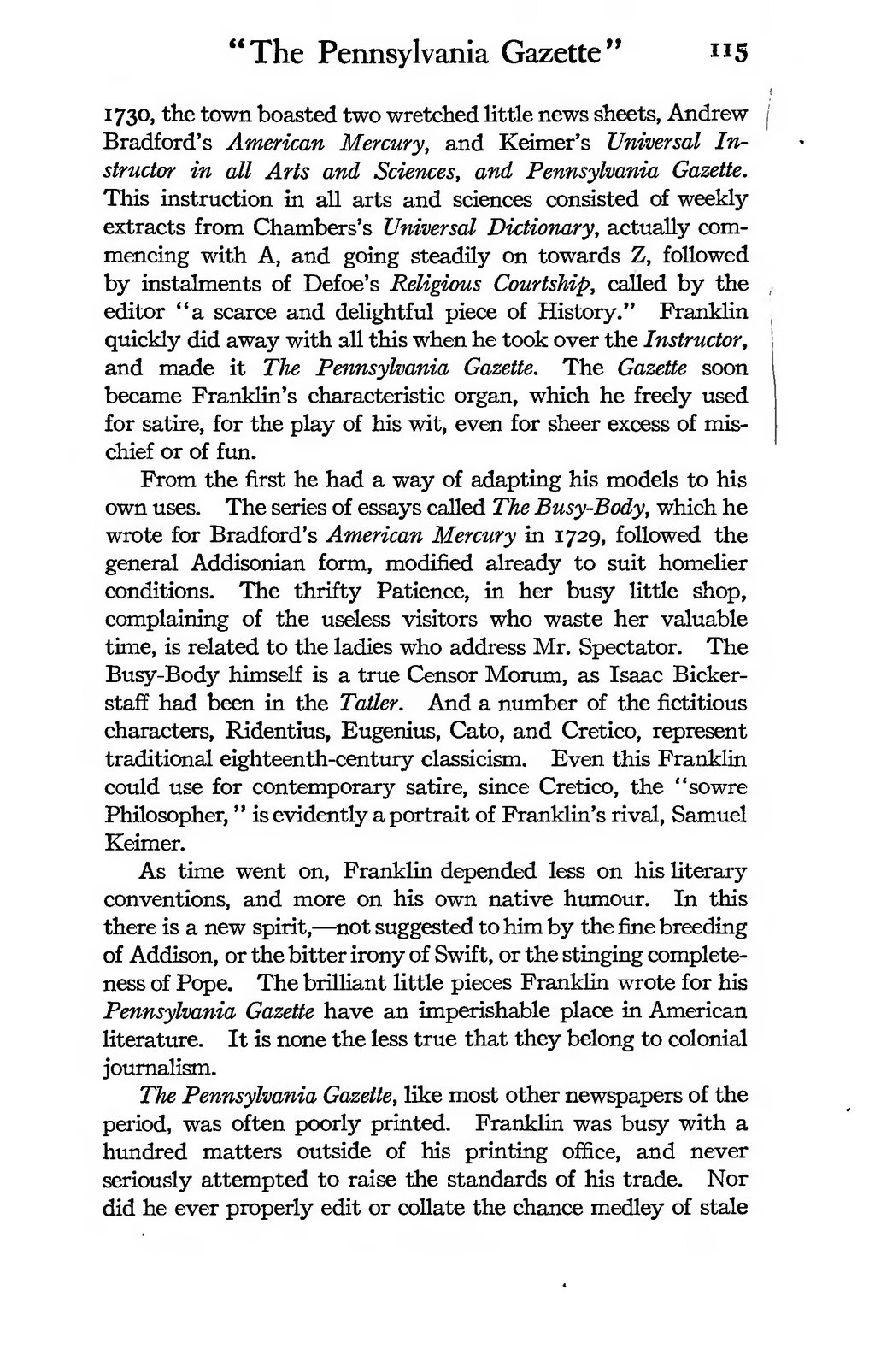1730, the town boasted two wretched little news sheets, Andrew Bradford's American Mercury, and Keimer's Universal Instructor in all Arts and Sciences, and Pennsylvania Gazette. This instruction in all arts and sciences consisted of weekly extracts from Chambers's Universal Dictionary, actually commencing with A, and going steadily on towards Z, followed by instalments of Defoe's Religious Courtship, called by the editor “a scarce and delightful piece of History.” Franklin quickly did away with all this when he took over the Instructor, and made it The Pennsylvania Gazette. The Gazette soon became Franklin's characteristic organ, which he freely used for satire, for the play of his wit, even for sheer excess of mischief or of fun.
From the first he had a way of adapting his models to his own uses. The series of essays called The Busy-Body, which he wrote for Bradford's American Mercury in 1729, followed the general Addisonian form, modified already to suit homelier conditions. The thrifty Patience, in her busy little shop, complaining of the useless visitors who waste her valuable time, is related to the ladies who address Mr. Spectator. The Busy-Body himself is a true Censor Morum, as Isaac Bickerstaff had been in the Tatler. And a number of the fictitious characters, Ridentius, Eugenius, Cato, and Cretico, represent traditional eighteenth-century classicism. Even this Franklin could use for contemporary satire, since Cretico, the “sowre Philosopher,” is evidently a portrait of Franklin's rival, Samuel Keimer.
As time went on, Franklin depended less on his literary conventions, and more on his own native humour. In this there is a new spirit,—not suggested to him by the fine breeding of Addison, or the bitter irony of Swift, or the stinging completeness of Pope. The brilliant little pieces Franklin wrote for his Pennsylvania Gazette have an imperishable place in American literature. It is none the less true that they belong to colonial journalism.
The Pennsylvania Gazette, like most other newspapers of the period, was often poorly printed. Franklin was busy with a hundred matters outside of his printing office, and never seriously attempted to raise the standards of his trade. Nor did he ever properly edit or collate the chance medley of stale
